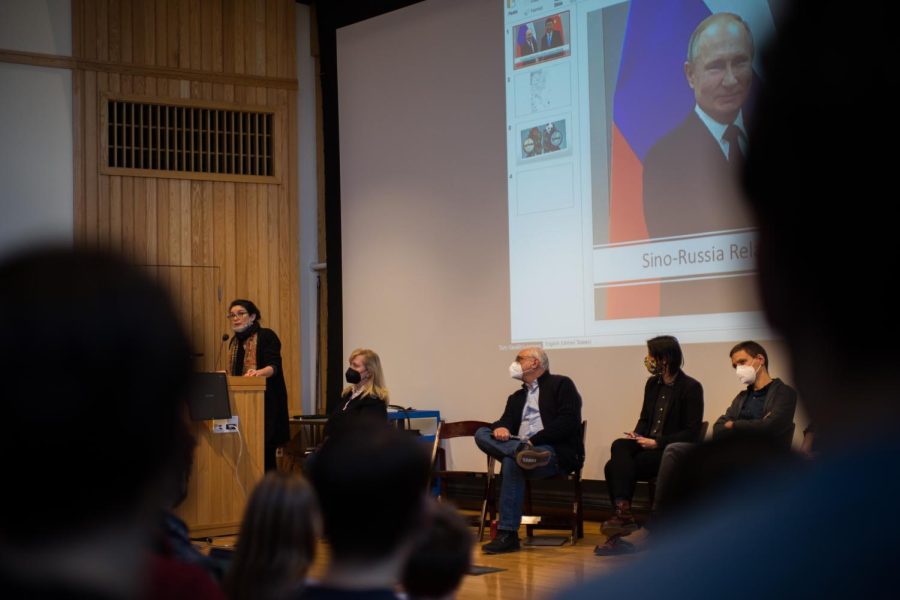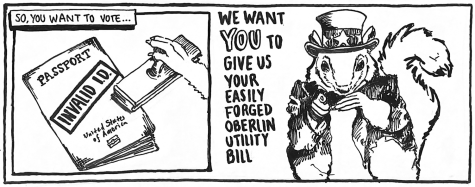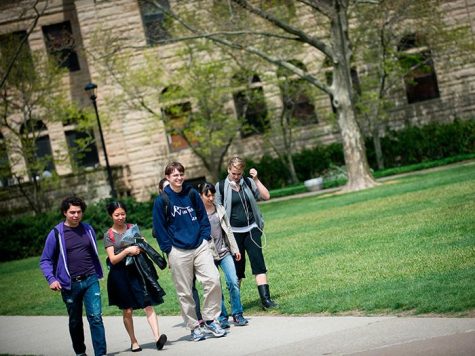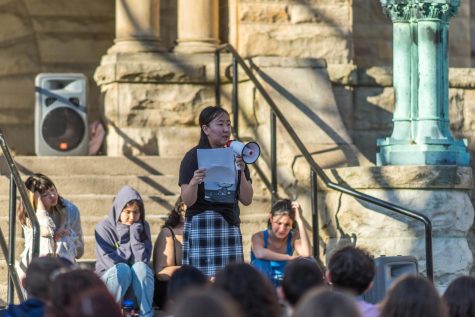Community Gathers for Teach-In on Russian Invasion of Ukraine
Over 250 students, professors, and community members attended yesterday’s Russian and East European Studies teach-in on the Russian invasion of Ukraine, which began Feb. 24. The event, moderated by Tom Newlin, chair of the Russian department, brought together seven faculty members from several departments on campus to help audience members better understand the history of the Ukraine-Russia crisis, the current violence, and the war’s implications for the international community.
Discussing and analyzing the details of the invasion was difficult and emotionally fraught for those on the panel and in the audience with personal ties to Russia and Ukraine. However, Visiting Assistant Professor of Russian Vladimir Ivantsov was heartened by the robust turnout.
“The situation is so difficult right now that it’s not about theoretical takeaways,” Ivantsov said after the event. “We need to talk, we need to discuss, and we need to feel ourselves as a sort of joint effort, as a community, because I think maybe some people here don’t really quite understand that it’s a real problem for the whole world now. … It shakes the principles of our existence and coexistence, and the whole idea of peace. So, we need to feel our ties as a community more than ever.”
Ivantsov was also glad for the opportunity to speak openly on the subject, though he expressed that mere discussion on the topic does little to ameliorate the crisis.
“We perceive this whole thing very personally — it’s very emotional, and it’s a kind of mixture of resentment, sharing some sort of shame that the Russian leaders impose on our country,” he said. “It’s really difficult just to say something about this, because you feel like whatever you say, it may be weak. … But I do think that the whole conversation allowed us to feel a little bit better, uplifted, and empowered.”
Panelist and Visiting Assistant Professor of Politics Amanda Zadorian urged students who attended the teach-in to continue to think critically about the crisis’ unfolding developments.
“The war is also one of narrative and disinformation, so paying attention to the sources of information, and also thinking when you’re consuming information about what interests that information is serving, and what stories are being told, is really important,” Zadorian said.
Students can support groups in Ukraine by donating to UNHCR, care.org, doctorswithoutborders.org, or directrelief.org.










